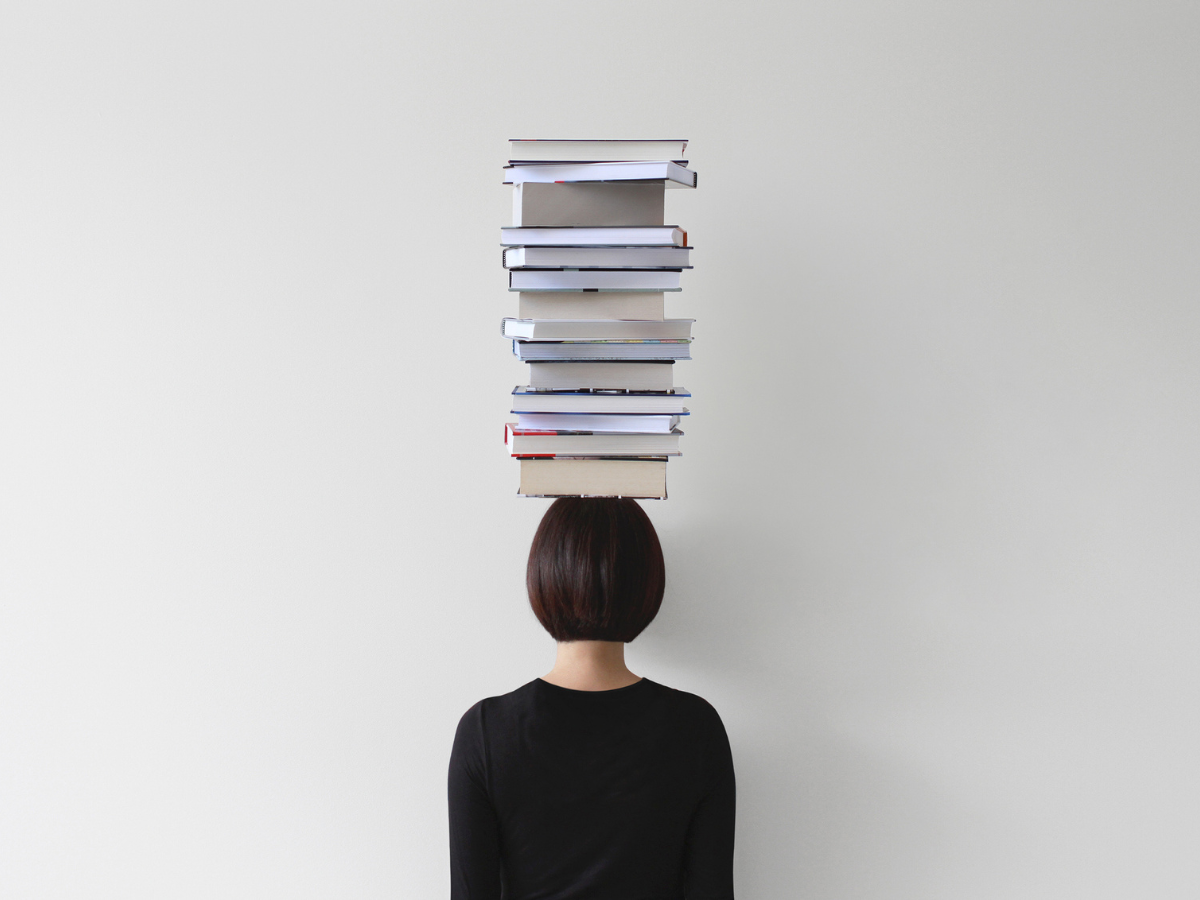

The Japanese call it “tsundoku,” the accumulation of books to read. And doing so surprisingly has a significant psychological meaning.
It hurts a bit to talk about it, but someone has to. Every year, countless books are bought by us readers with the hope, the ideal, the dream of perhaps being able to… read them.
Book Smart: Olivia Wilde Has A New Book Recommendation For Us All!
Unfortunately, day after day, month after month, these books end up feeding a mechanism that the Japanese call “tsundoku,” the accumulation of books. A phenomenon that doesn’t entirely have to do with (as we mistakenly think) compulsive buying behaviors.
The stack of unread books can be a solid brick of our mental well-being, a post-it reminding us how much we still want to discover about the world. So, let’s analyze this phenomenon, of which we are all more or less protagonists.

It All Starts with an Italian Man Donating Books
Anyone talking about this phenomenon cannot avoid mentioning Umberto Eco. Among the book enthusiasts in human history, with his certified collection of over 30,000 books donated today to the Italian State, he is one of the first modern “private” individuals to have had a library of boundless dimensions.
And, like us, he had never read most of the books in his library.
The anecdote echoes of some of his students who, seeing this enormous amount of titles, reacted in two ways. Most expressed amazement, asking if he had read them all, while others grasped that the bulk of books served a practical purpose: they constitute an archive of knowledge, encompassing what one desires to know.
Eco’s anecdote seems to come from the description of a library found in the novel “Gulliver’s Travels,” where the king’s books are too limited a source to understand a foreign world. Hence, the concept of the “antilibrary,” first defined by the author Nicholas Nassim Taleb.
The “Value” of Not Knowing
Recently linked to the Japanese term “tsundoku,” the antilibrary is far from mere accumulation for its own sake, but a concrete demonstration that there is a world of things we still don’t know but want to know.
According to Taleb, admitting to having an antilibrary of stories and facts about the world has enormous value because it expresses the literally infinite potential for growth in knowledge. Admitting one’s ignorance, which in this case is not disinterest in reality. The more we grow and know, the greater the margin of things we want to know.
In a world where information is all before our eyes on Google, the place of our “not knowing” becomes even more important. Has anyone ever read a dictionary or Wikipedia entirely? Almost no one. Yet, knowing it’s there and at hand projects us into the future.
It always matters, whether it is an essay, a novel, a magazine, a newsletter, an in-depth web article. In this way, we “save” content and transform it into an idea of “exploration” to come.

The Place of Unread Books
To delve into practical behavior, we asked Andrea Amadio, known on TikTok and Instagram by his alias libriconfragole (also) for his voracious reading, what his relationship is with the “tsundoku” phenomenon. “Like almost all readers, I also have a lot of unread books,” he says, “and I don’t hate myself for having more books to read than those actually browsed, on the contrary.”
“My fact is that out of 80 books I read on average in a year, I have at least another 60 waiting,” he says. “Continuing to accumulate unread books and placing them together with those already consumed, divided by publisher and genre, is normal for me: it is my personal promise that at the right time I will give them the proper space.”
“Seeing them there doesn’t hurt me,” he adds, “and I’ll say more: I feel relaxed falling asleep with the view of the titles waiting to be read, perhaps because I can’t wait to ’embrace’ them and travel with them.”

The Important Thing Is Not to Be Afraid
Long books, difficult books, books on which we have too many expectations, books that address very personal topics, and books that need time to be enjoyed… The reasons for “not reading” are many, but the goal is to live the moment serenely: it is not a race and is an extremely personal matter.
Some prefer to schedule reading, some force themselves never to let go of a book until its end, and some carry certain books forward for a decade. We have been taught that reading is a serious activity, but it is primarily a pleasure of discovery, so it is worth following one’s instinct. Everything is permissible: even untethering the concept of reading from buying new books.
As writer Jessica Stillman says, “If your reading pace doesn’t keep up with your purchasing pace, I have good news for you: your library full of unread texts is not a sign of failure or ignorance but a badge of honor.”
Finding Balance (and Book Recs) With Emma Roberts
This article first appeared on Grazia.it – Author: Alessandro Alicandri














